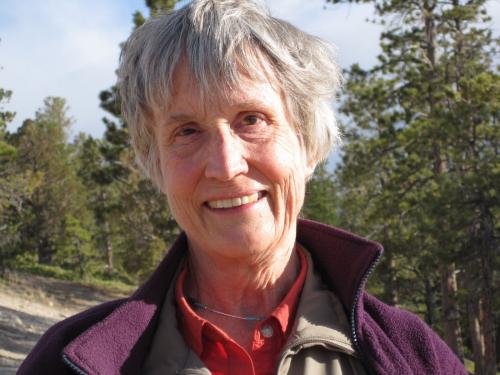Feminist theorist Donna Haraway and literature-and-science researcher Bruno Clarke pay tribute to evolutionary theorist Lynn Margulis. In this special edition of An Evening With, they explore Margulis’s pioneering theories of symbiosis and Gaia, discuss their implications for current research in sympoiesis and posthumanism, and celebrate the publication of Writing Gaia: The Scientific Correspondence of James Lovelock and Lynn Margulis. The event will be moderated by Rosi Braidotti.
Donna Haraway is Professor Emerita at the University of California-Santa Cruz.
Lynn Margulis (1938-2011) fought against the orthodoxies of genetic determinism and promoted the concept of symbiosis as the fundamental process uniting biology and ecology. Margulis also collaborated with James Lovelock to develop and promote the Gaia hypothesis, which in her view sees Gaia as the planetary sum of all symbioses.
Bruno Clarke is the Paul Whitfield Horn Distinguished Professor of Literature and Science at Texas Tech University.
Rosi Braidotti is Emerita Professor at the University of Utrecht and affiliated to the Nieuwe Instituut.
This event is organised in collaboration with the Faculty of Architecture and the Built Environment of TU Delft. TU Delft is organising a masterclass with Donna Haraway on 8 December 2023. For more information, visit the website of TU Delft.
The Master Class is held in conjunction with Nieuwe Instituut, Rotterdam, the host of ‘An Evening With

Donna Haraway, Bruno Clarke and Rosi Braidotti’ on Thursday, 7th December, the ‘Posthuman Symbioses Masterclass’ on 7th December at BK/TU Delft is open to a maximum of 100 participating MSc students and PhD candidates.
The Masterclass is organised around two sessions where a total of 12 selected students will be given the opportunity to deliver a brief pitch presentation of their research (maximum of 5 slides, 10 minutes) with a following discussion round. The event is conceived as an intergenerational experience of ‘learning-with’ Haraway and Braidotti as leading (eco)feminist/posthumanist theorists, and (PhD) students with a keen interest in adopting and adapting their approaches in their own research and designerly work. The wider intention is to generally foster inter- and trans-disciplinary approaches to architecture and urban design that embrace the life sciences or humanities, and especially posthuman/sympoietic approaches, situated forms of knowledge, and ‘minor’ angles.